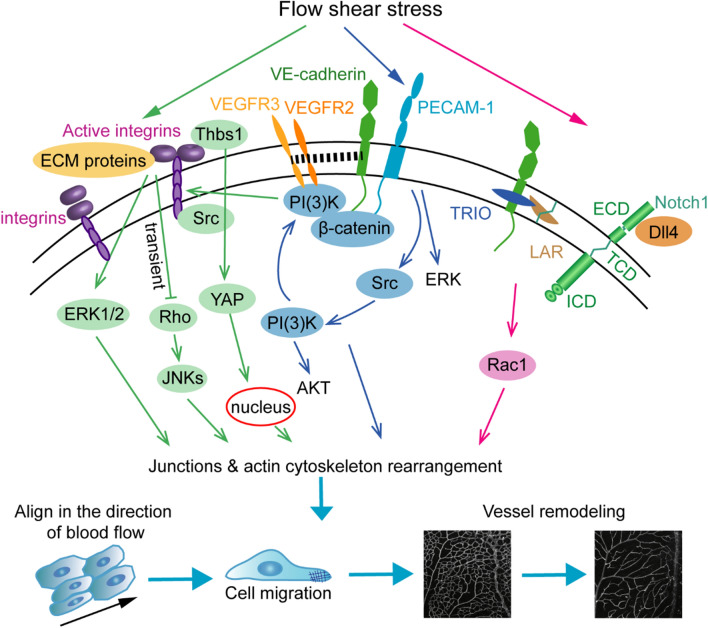Fig. 5.
Mechanosensors regulate vessel remodeling, including integrin signaling, VE-cadherin, VEGFR2/3, PECAM-1 complex and Notch1 signaling. Integrins interact with Thbs 1 to promote YAP nuclear translocation and regulate vessel remodeling by promoting cell migration, junctions and actin cytoskeleton rearrangement. Flow shear stress (FSS)-induced ERK1/2 activation and Akt phosphorylation depend on integrin binding to extracellular matrix (ECM) proteins. The combination of integrins and ECM proteins induces a transient inhibition of Rho and the activation of downstream JNKS, which is necessary for cytoskeletal alignment in the direction of flow. The mechanosensory complex, PECAM-1-VE-Cadherin-VEGFRs, activates the PI3K-Akt pathway to promote cell migration. PECAM-1 directly senses mechanical force and then activates Src, and VE-cadherin binds with β-catenin and VEGFR2/3 to activate downstream P13K and integrin. The NOTCH1 mechanosensory complex senses FSS and regulates junctions and actin dynamics, which includes the processes of (i) FSS-induced endocytosis of DLL4; (ii) cleavage of NOTCH1 to expose the transcellular domain (TCD); and (iii) binding to the LAR with VE-cadherin and TRIO to activate the downstream target RAC1

